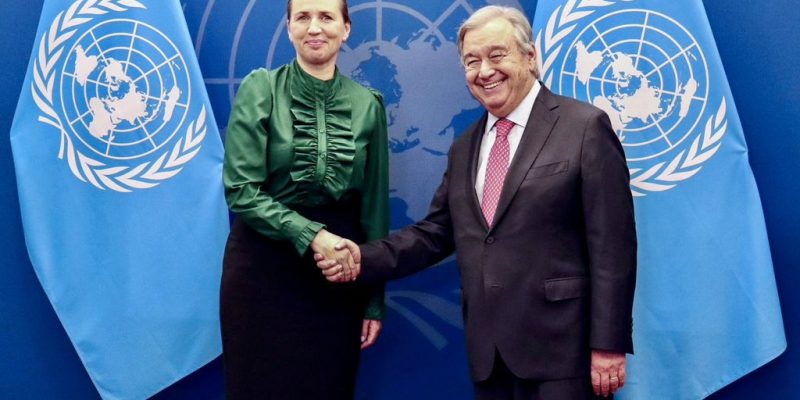At the 78th General Assembly of the United Nations (UN), which is taking place in New York in the United States of America, the Prime Minister of Denmark announced the reform of the Investment Fund for Developing Countries (IFU), the financial arm of Danish diplomacy. According to Mette Frederiksen, IFU investments will be doubled by 2030.
The reform of development finance institutions is taking shape. Denmark, which has increased its investment in Africa tenfold in recent years, is taking the lead by reforming its Investment Fund for Developing Countries (IFU). The process announced at the 78th General Assembly of the United Nations (UN) will lead to an increase in IFU investments in developing countries.
The IFU investment ceiling will rise from €2.1 billion in 2022 to €4.7 million by 2030. At least 50% of these investments will be made on the African continent. “The reform of the IFU is revolutionary for Danish development aid, and it is important that we are able to present it at a time when developing countries need more funding”, explains Dan Jørgensen, the Danish Minister for Development Cooperation and Global Climate Policy.
The contribution of private companies to financing the SDGs
He added that “we need new tools to free up more private capital, and the IFU is ready to provide them at an even higher level. This is important for the climate, for developing countries and for Denmark’s role as an environmental pioneer”.
Read also- AFRICA: IFU invests €4.5m in the Spark+ fund for environmentally-friendly cooking
The reform of the IFU will also result in an increase in its climate finance from €268 million per year (2022) to between €670 million and €940 million by 2030. The same applies to the €670 million Danish Investment Fund for the SDGs, which is expected to receive €400 million from private investors “willing to make sustainable investments”, according to the IFU. The development finance institution is pursuing its strategy of financing private companies and projects developed under public-private partnerships (PPPs).
A few months ago, IFU invested over 20 million dollars in Continental Blue Investments Ghana (CBI). The Accra-based cement manufacturer will use this investment to produce low-carbon cement. IFU is also investing in renewable energy projects, including the 28.5 MWp Golomoti solar photovoltaic plant in Malawi. The fund is also interested in the neglected clean cooking sector in Africa.
Jean Marie Takouleu





